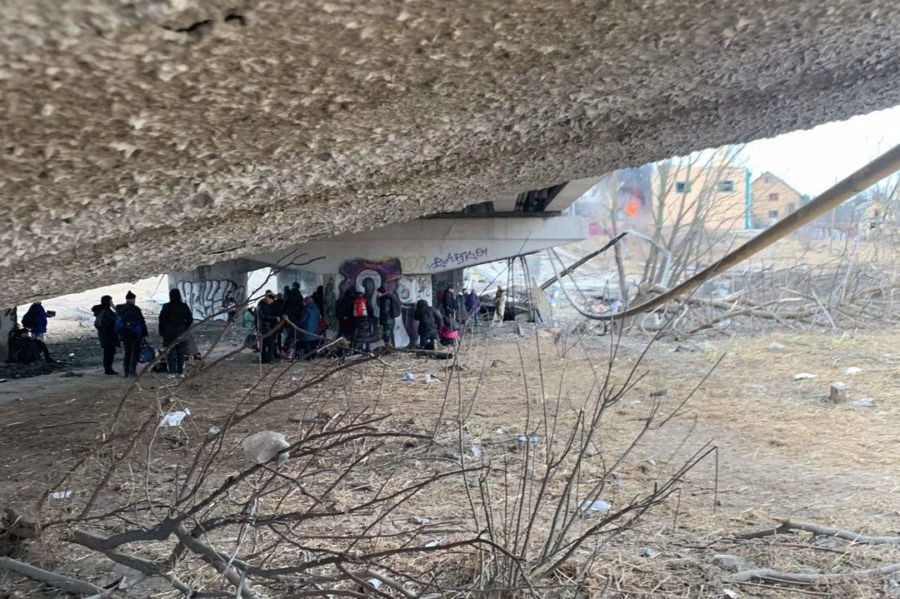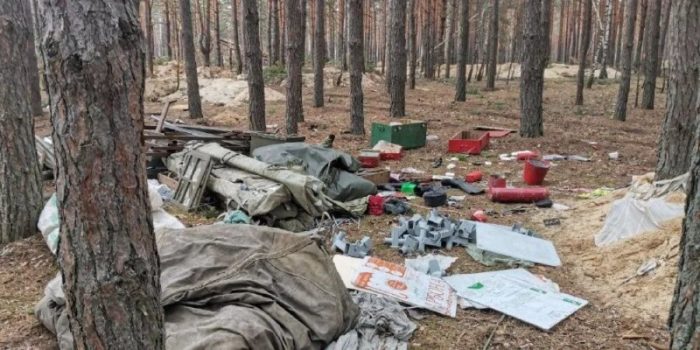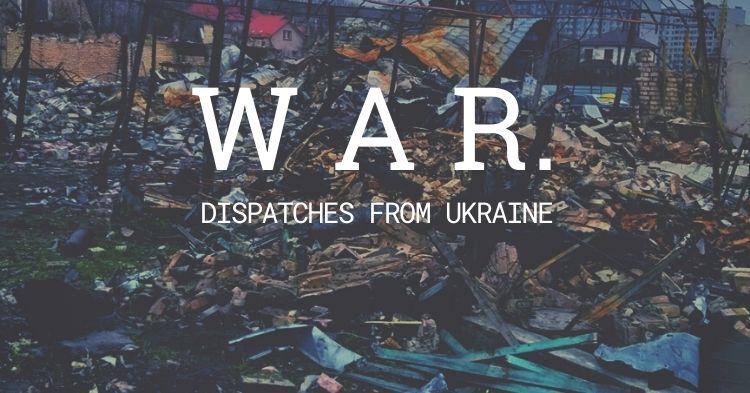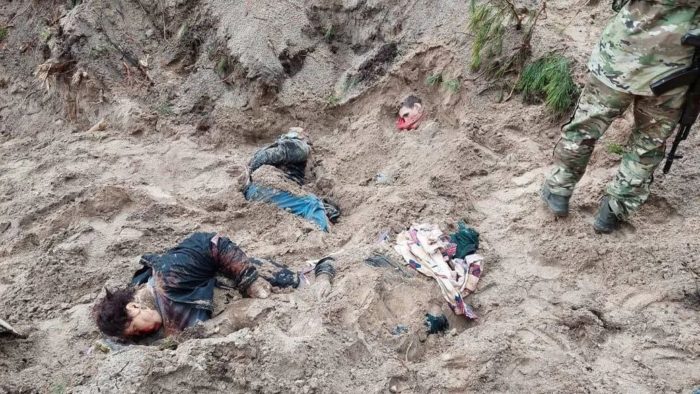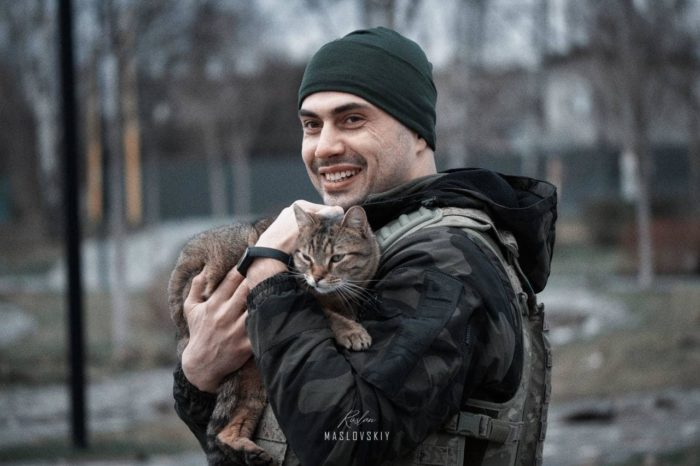During the last two weeks, the towns to the northwest of Kyiv have been turned into hot spots. The Russians are attempting to get through them in order to reach Kyiv. Civilians living there are being used by Russians as human shields so as to get closer to Kyiv.
Here is a translation of just one of the hundreds of stories from civilians trying to escape from the war-torn area. Russian occupation survivor, Ukrainian lawyer Dmytro Tkachuk, who managed to escape from Bucha, described his story of survival in his own words.
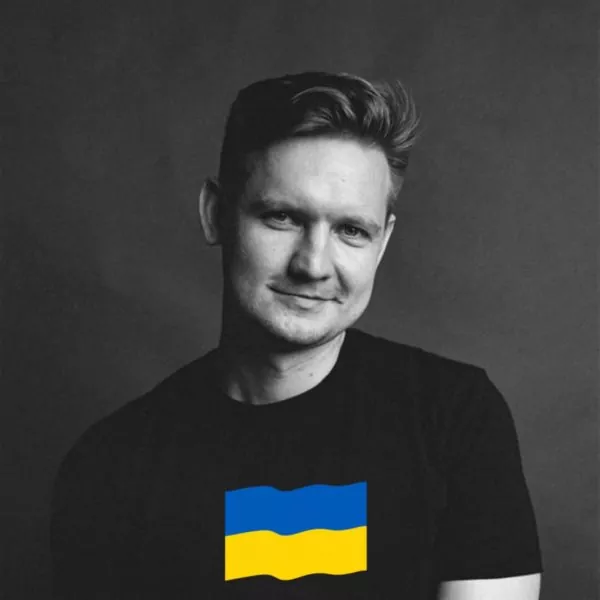
Day 1
The war caught up with me and my family in Bucha. On 24 February, I was in a private house with four women: my mother, my sister, and two grandmothers (74 and 83 years old). My father was in Kyiv. He could not come to us. When it all was starting, we felt relatively safe in Bucha. It was possible to quickly get either to Kyiv or the Warsaw Highway and send the family to the West. But the war ignores your logistical plans. It comes to the places you don't expect it. So it happened to us. From all the military bases and critical infrastructure of our country, the bastards started the offensive from Hostomel - a cargo airfield located 5 km north of our house in Bucha.Day 2
Already on the second day of the war, our guys from the Armed Forces of Ukraine blew up the bridge to Kyiv (east), and the orcs launched an offensive on Borodyanka and Vorzel from the west. Shortly afterward, fighting broke out in Bucha itself. Explosions started to be heard from each of the four sides of our house. The windows blew out of almost every one of them. We were surrounded. At the same time, we still thought that because we are peaceful civilians and because we didn’t keep arms at home, no one would touch us. We were wrong.Day 3
Sometimes on the third day, our electricity, internet, and mobile communications were cut off. Locals said they saw orcs cutting cables on mobile towers. We remained completely blind. You can spend hours looking at your phone, at the circle next to your messages in the telegram that gives you hope that the messages will be sent. But no. Nothing flies in and out. Explosions caused by shells could be heard all the time. Sometimes they were less loud, and sometimes it sounded as if they were right in your backyard. From time to time, after particularly loud explosions, the sky from the side of Hostomel and Kyiv turned crimson. As if it was bleeding. The noise from jet planes was added to all of this, for some reason it was heard only early in the morning. I would even say that this noise was more like a low but loud whistle that gets louder when the plane approaches. And every time your brain whispers to you that the plane will drop a shell exactly on your house, will blow it up completely and destroy your whole family.
Varnish Factory not far from Tkachuk’s house. From Tkachuk’s archive.
Day 6 or 7
In early March, we went outside for water from the pump room, walked to the end of the street, and ran into the enemy’s armored vehicles at the turn. It had the letter V on its side. Two demons with white bandages were standing near the car, staring at us. We turned around very slowly and returned home. The fear paralyzed the mind, but the body moved. The next day we still had to go for water, because we had no choice. And we went. We thought we would stay at home. We thought we were safe, because why would the enemy shell a private neighborhood? Meanwhile, there was no corridor. There were sounds of explosions from armored vehicles and machine guns from the street. Fighters continued to fly over the house. We went down to stay in a basement where it was +5-7 °C. We thought it would be calmer.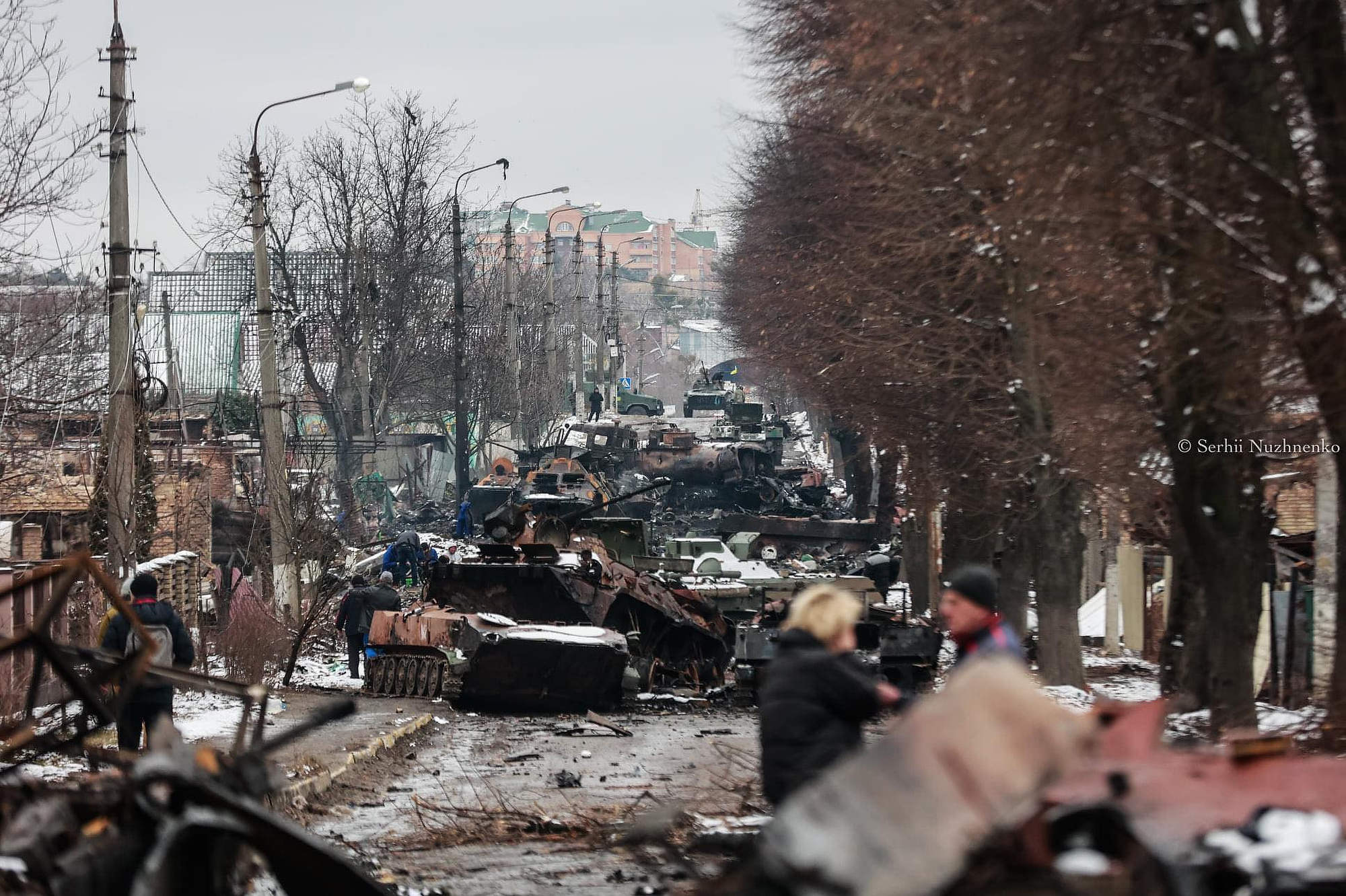
Day 10
We thought so until 5 March, the day when the enemy tank came to our street. In front of me, at first, this iron bastard shot at a private house that was one house from ours. Then it aimed at the dome of the church that was 70 meters away from us. The noise was as if all the bells of the world rang. I don't know how our windows withstood it. I don't know how my ears started to distinguish any other sounds after that. Later, my sister and I saw a sprinter that stopped in front of the church, the driver and passengers ran out and lay down on the asphalt behind it. I think they were hiding from the enemy’s armored vehicles. These poor people made a homemade white flag on a stick and from time to time showed it to the enemy. But there was no reaction, so they continued to lie on the asphalt, hoping that they would not be hit by a tank.
A white flag can be seen.

“Where are you going? There is an enemy checkpoint 300 meters away. They’ll f*cking shoot you."This was the first, but not the last, time we heard these words that day. But every time we looked at each other and realized we had to move on. We could not stay. It is good that Lisova (Forest) Bucha is a place where my mother and grandmother grew up. They know every way and every tree there. We passed the checkpoint, came to the pond, and went to Irpin through a place where once as children we had learned to swim. Through the place where shells were constantly flying between Irpin and Bucha. Where buildings were burning from every side, from which thick black smoke was rising. It seemed to me that my head was turning gray with every explosion. There was a strong smell of pyrotechnics in the air. I used to like it. Now I hate it. We walked slowly because both grandmothers were doing their very best to keep up. My mother was very worried that this route march would kill them. I thought that if it would not be that, then a random shell would kill all of us. That is why we had to go. And we went. We sneaked through the bushes and off-road until we finally saw the first checkpoint. Our checkpoint. This meant that we managed to get around enemy ones and leave the town. Occupied Bucha was left behind. At the entrance to Irpin, our guys from the territorial defense met us. When you see a blue and yellow handkerchief on a soldier's hand, your legs go weak with relief for a moment. I always loved our flag, but I have never been so happy about it in my life.
The aftermath of the Irpin shelling.Наслідки ранішнього обстрілу міста Ірпінь, що неподалік Києва pic.twitter.com/dFjALBzBKH
— Радіо Свобода (@radiosvoboda) March 2, 2022
"Stay with us. We will feed you. We have already accommodated up to 200 people.”The church was warm and crowded. There were sleeping places. My body gave me a clear signal that it was ready to fall on the next chair and not get off it until the next morning. But the brain had been winning that fight. Just a few minutes later, several men in military uniforms entered the door.
"The situation is getting worse," said one, "the corridor is closing."Yesterday we drove there quietly. Today you can only walk across the field”. We exchanged glances with our neighbor and realized we had to go. Even run. Right now. The legs of one grandmother started to give out. She couldn't walk without assistance. She was scared and hurt. We approached the last checkpoint of our guys in Irpin. Then, there was only a field, an asphalt road, and a bridge over the Irpin river. It was the road to Kyiv. There were several dozen houses behind the bridge, it was Romanivka. Behind it, there had to be evacuation buses. Behind it, there had to be our home.
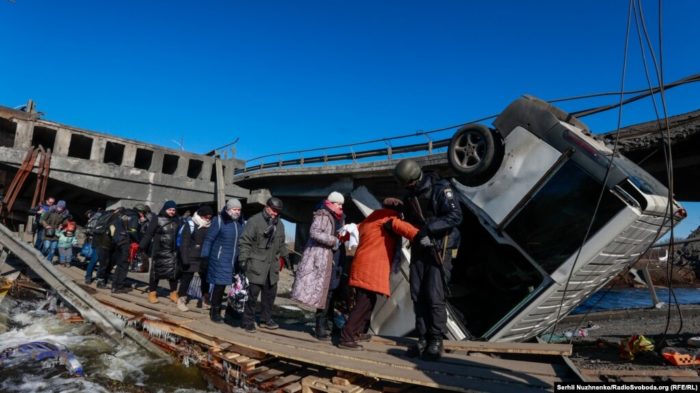
"They have been shelling for five hours already. You should go in that direction. Go lower the road, through the field, a bit less than a kilometer. There is a blown bridge behind the field. There, you will understand everything. If you hear the whistling of a shell, you will have from 7 to 2 seconds to fall to the ground. Fall every time!"And we left. Running forward, we fell about 20 times. As soon as we went out on the field, two things happened. The shell hit two houses on both sides of the bridge. Right in front of the bridge. Everything ignited instantly, and the sky was covered with black smoke. The second thing was that my grandmother had lost the use of her legs. She couldn't walk. When we already left the checkpoint and did not have any shelter. At such moments, your brain does not work. You're just surviving. My sister and I took my grandmother by the arms and started to drag her behind us. Grandmother in one hand, in the other a huge bag, which contained all our valuables from home. Over our heads, there was another whistling of a shell. We fell to the ground. It hit an unfinished house somewhere to the left of us. I jumped to my feet, grabbed my grandmother, picked up my sister, and we ran again. Our mom, another grandmother, and neighbors ran ahead towards the bridge. A whistle again - a few seconds and another shell hits the bridge. Grandma shouts that we should leave her there and run to the bridge ourselves. If this isn’t hell, then what is? I don't know how we got to it. I remember the military standing there waving at us to run under the bridge. When we finally ran, we saw that there were already 40 civilians there apart from us. Everyone was scared. They stood under the abutments because there was less chance that they would be crushed by the wreckage of the bridge from the next hit. We were not allowed to go across the river. The military made it clear that another shell could arrive from above at any moment. I think they were waiting for an order from the commanders. We were so close to Kyiv. Several hundred meters and you're home. We heard another whistle. This time, a double one. Two shells hit the field that was to our right. We were so near and yet so far at the same time. I stood under the bridge, watching people tremble and cry nearby, and thought that the Russians had made me a refugee in my own home. Moreover, they wanted to bury me at home. At that moment, something flashed in my head. Some powerful internal protest. I started to repeat to myself that I was not going to die there. Not today. Not near Irpin. And not at the hands of the Russians. The soldier gave us a sign that we should move quickly to the river. We rushed forward. Me, my sister, our grandmother between us, and a bag with our stuff. Soldiers put a 40 centimeter-wide desk across the river. In front of us, people were carrying a woman in a wheelchair. On the other side, two soldiers ran over, took the woman in their arms, and slowly carried her to the other bank. You know, although it was a critical moment, I wanted to stop and just applaud these guys. It was a powerful act of some basic humanity in a time of deep crisis. My mom and my grandma went first. My dear grandmother in her 83 years showed the wonders of endurance, courage, and grace and quickly moved to the other bank of the river. Marysa and I were carrying another grandmother ourselves.
"Please, not a shell, just not a shell," I repeated to myself because there was nowhere to hide. Step by step, step by step and we are finally on the other bank.I constantly replay the next episode in my head like in slow motion - I look up, the military wave at us from above and shout “RUN! RUUUUN !!!" There are two houses on fire, we are very close to our checkpoint, and I understand that a shell can hit us at any moment. But I can't run, because another grandmother is lying on top of me. She absolutely can’t stand on her feet and is shouting that she no longer can do it. But we went. Went as we could. Semi-squat. But we still could not keep up with others and were left behind. We probably wouldn't have gotten off that bridge if a bus hadn't approached us from the side at that moment. The door opened and we saw a woman in a wheelchair in front of us and several other people sitting there. There was almost no space inside the bus, so I pushed my grandmother there, closed the door, and ran towards the checkpoint. I ran, my sister and several strangers were running nearby. Our checkpoint was in front of us, behind it. Two girls in military uniforms waved at us. 50 meters. 45 meters. 40 meters. 30. 20. 10. It seemed to me that this distance, this longest cross in my life, would never end. But here we ran past the girls, ran to the route located in the woods and another 50 meters on autopilot. We are in Kyiv. We are home. An ordinary Kyiv passenger bus goes towards us. Yellow and blue. Saving one. My mother, grandmother, and our neighbors are already sitting inside. It stops near us. Behind it, the bus unloads my other grandmother and we, along with 40 other people, run into the bus. A minute and we are already going in the direction of Kyiv. While we were driving through the woods, I could not understand what had happened to us. I watched how my mother pulled our little dog out from under her jacket, which she had carried on her chest from Bucha all by herself. I looked at both grandmothers, whose faces had not been so red for a long time. I looked out the window. And when we drove to Kyiv, I cried. Akademistechko [district in Kyiv] has never been so dear and beautiful to me. 17 km on foot. With two grandmothers and a dog. Under constant mortar fire. Walking around the corpses of civilians. We broke through hell. And survived.
Three weeks of Russia’s war against Ukraine in photosNow, when I think about why it happened, it seems to me that it was a reward for staying alive. To survive in a war, you need to look into its eyes. You can look into the eyes in different ways:
- either to prepare for it and meet it prepared, standing firmly on both feet on your land;
- or try to hide from it, and then, risking your life, to escape under fire from the occupied territories;
- or to not try to leave the occupied territories at all and hope that your home will not explode from a mortar strike.
Read also:
- Putin: I can take Warsaw, Riga, Vilnius and Bucharest
- Russia disrupts humanitarian convoys and evacuation from the war zone in Ukraine
- Three weeks of Russia’s war against Ukraine in photos
- War in Ukraine, day 12: Russia continues efforts to encroach on Kyiv

